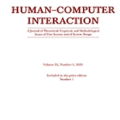While AI has benefited humans, it may also harm humans if not appropriately developed. The focus of HCI work is transiting from conventional human interaction with non-AI computing systems to interaction with AI systems. We conducted a high-level literature review and a holistic analysis of current work in developing AI systems from an HCI perspective. Our review and analysis highlight the new changes introduced by AI technology and the new challenges that HCI professionals face when applying the human-centered AI (HCAI) approach in the development of AI systems. We also identified seven main issues in human interaction with AI systems, which HCI professionals did not encounter when developing non-AI computing systems. To further enable the implementation of the HCAI approach, we identified new HCI opportunities tied to specific HCAI-driven design goals to guide HCI professionals in addressing these new issues. Finally, our assessment of current HCI methods shows the limitations of these methods in support of developing AI systems. We propose alternative methods that can help overcome these limitations and effectively help HCI professionals apply the HCAI approach to the development of AI systems. We also offer strategic recommendations for HCI professionals to effectively influence the development of AI systems with the HCAI approach, eventually developing HCAI systems.
翻译:虽然大赦国际使人类受益,但如果没有适当发展,它也可能伤害人类; HCI 工作的重点是从与非AI型计算机系统的常规人类互动转向与AI系统的互动; 我们从HCI的角度对目前开发AI系统的工作进行了高级别文献审查和全面分析; 我们的审查和分析突出了AI型技术带来的新变化以及HCI专业人员在开发AI系统时应用以人为中心的AI(HCAI)方法时面临的新挑战; 我们还查明了HCI专业人员在开发非AI型计算机系统时没有遇到的与AI系统进行人类互动的七个主要问题; 为了进一步实施HCAI方法,我们查明了HCI 与特定HCAI驱动的设计目标挂钩的新机会,以指导HCI 专业人员处理这些新问题; 最后,我们对目前HCI 方法的评估表明这些方法在支持开发AI系统时的局限性; 我们提出了有助于克服这些限制的替代方法,并有效地帮助HCI 专业人员在开发AI系统时应用HCI 方法。 我们还为HCI 的专业人员提供战略性建议,以便HCI 有效影响AI 与HAI 系统的发展。





